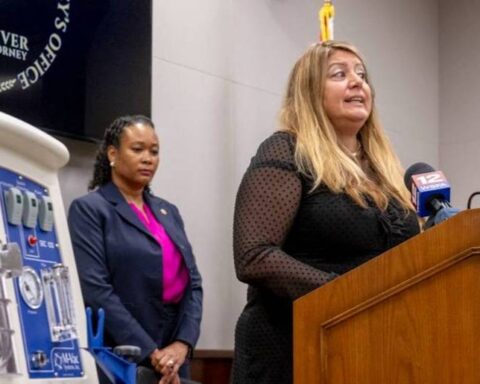By Alabama State University
The National Institute of Health (NIH) has awarded Alabama State University a five-year grant worth $2.97 million from its National Research Mentoring Network titled, “Intersection of Social Capital, Mentorship, and Networking on Persistence, Engagement, and Science Identity.” ASU will lead the grant activities, as well as partner institutions Tuskegee University (TU), Savannah State University (SSU), Vanderbilt University (VU), and the University of North Texas Health Science Center (UNTHSC).
Each year, a minimum of 150 freshmen students from ASU as well as TU and SSU will be benefited by this grant.
ASU’s Dr. Manoj Mishra, professor of Biology and founding director of the University’s Cancer Biology Research and Training (CBRT) organization, will serve as the principal investigator of the grant.
This project is named “NRMN MISSION,” which stands for “Mentorship, Integrating students, Social/Scientific Organization Interaction , engagement, and Networking.” Its participating students will be referred to as “MISSION” scholars. The main goal of this grant is to increase the diversity of the biomedical workforce by providing mentorship, networking, and career development activities to freshmen students in biomedical disciplines at ASU and partnering institutions.
ASU STUDENTS BENEFIT GREATLY
For ASU, this project will provide effective mentoring and impact a large number of freshmen students at the University who are interested in biomedical careers. This will assist the University in the retention of its students and further establish and strengthen partnerships with other institutions who are facing similar challenges in training, mentoring, and retention, said Mishra.
“It is very critical to provide freshman undergraduates at ASU mentorship and networking opportunities to motivate them to stay in the science disciplines, complete their undergraduate studies at ASU, and work to attain admittance in to graduate school and research programs,” Mishra said. “It is imperative for us to provide enhanced mentorship, networking, and the support of even more experienced mentors and advisers who can help students make the right decisions at the early stage of their academic career, which is what this important NIH grant helps us to do even better at ASU,” Mishra commented.
MENTORING IS THE KEY
Mishra added that this project will provide a great analysis of effective mentoring practices that helps ASU students to overcome different social factors in their formative freshmen years, which works to help increase the retention of ASU’s students.
The co-investigators from Alabama State University with Dr. Mishra include Dr.’s Marcia Rossi, Tina Vazin, Kenley Obas, and Sabita Saldanha. Each of the other schools named in the grant will have similar academic staff involved in similar positions.
“This is another great step forward for ASU in working to increase the number of its students studying and taking on active careers in STEM fields, which is important for the continued growth of the University and for the community at large,” Mishra said.







